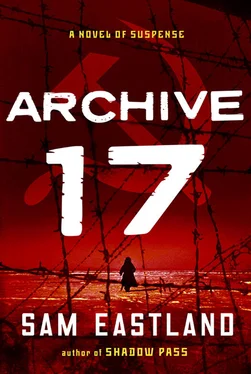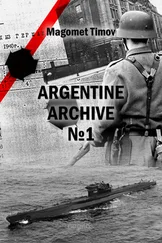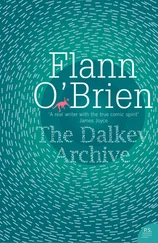Sam Eastland - Archive 17
Здесь есть возможность читать онлайн «Sam Eastland - Archive 17» весь текст электронной книги совершенно бесплатно (целиком полную версию без сокращений). В некоторых случаях можно слушать аудио, скачать через торрент в формате fb2 и присутствует краткое содержание. Жанр: Исторический детектив, на английском языке. Описание произведения, (предисловие) а так же отзывы посетителей доступны на портале библиотеки ЛибКат.
- Название:Archive 17
- Автор:
- Жанр:
- Год:неизвестен
- ISBN:нет данных
- Рейтинг книги:3 / 5. Голосов: 1
-
Избранное:Добавить в избранное
- Отзывы:
-
Ваша оценка:
- 60
- 1
- 2
- 3
- 4
- 5
Archive 17: краткое содержание, описание и аннотация
Предлагаем к чтению аннотацию, описание, краткое содержание или предисловие (зависит от того, что написал сам автор книги «Archive 17»). Если вы не нашли необходимую информацию о книге — напишите в комментариях, мы постараемся отыскать её.
Archive 17 — читать онлайн бесплатно полную книгу (весь текст) целиком
Ниже представлен текст книги, разбитый по страницам. Система сохранения места последней прочитанной страницы, позволяет с удобством читать онлайн бесплатно книгу «Archive 17», без необходимости каждый раз заново искать на чём Вы остановились. Поставьте закладку, и сможете в любой момент перейти на страницу, на которой закончили чтение.
Интервал:
Закладка:
Before Melekov had a chance to react, Tarnowski laid him out with a fist to the side of the head. Melekov sprawled unconscious on the floor.
“Time to go, Pekkala,” said Tarnowski.
Suddenly, a wall of darkness seemed to rise from the entrance to the camp. A tremor passed through Pekkala. The ground shook under his feet. Then a flash as bright as molten copper burst through the narrow gap between the gates, which tore loose from their iron hinges, scattering the links of chain which had held them shut.
“Head straight through the entrance,” ordered Tarnowski. “Don’t stop for anything. I’ll meet you on the other side.”
Without a word, Pekkala set off running across the compound. In between clouds of smoke, he glimpsed the Ostyaks milling about just outside the gates. They had brought sleds, four that Pekkala could see, each one harnessed to a single caribou.
Guards spilled out of the watchtowers. None of them made any attempt to open fire on the Ostyaks. Instead, they scrambled down their ladders and bolted for the safety of the guardhouse.
On the other side of the compound, Pekkala caught sight of Lavrenov. Kneeling in front of him was one of the guards, whom Pekkala recognized as Platov, the man they called Gramotin’s puppet. On his way to the guardhouse, Platov had slipped on the ice and dropped his rifle.
Before Platov could get back on his feet, Lavrenov had snatched up the gun, with its long, cruciform bayonet, and now aimed it squarely at the guard. “Which god are you praying to now?” screamed Lavrenov, as Platov raised his hands desperately to shield his face. “Haven’t you abolished all of them?”
Pekkala lost sight of the two men as he ran past the bronze statue. At that moment, he spotted a guard up on the walkway between the towers. This one had not fled like the others. Instead, he took aim at Pekkala. As the man raised the gun to his shoulder, Pekkala realized it was Gramotin.
He heard the gun go off, brittle and echoing across the compound, and then came a dull clang as the bullet struck the statue of the woman.
Then another shot rang out, this one from the other side of the compound.
Gramotin’s legs slipped out from under him. He tumbled from the walkway into the ditch below.
As Pekkala sprinted through the gates, an Ostyak grabbed him by the arm. The stocky man, his wide face powdered with smoke, steered Pekkala towards one of the sleds. As Pekkala crouched on the narrow wooden platform, he stared through the jagged teeth of splintered wood, all that remained of the gates, at men running about in the compound. Half-dressed, disoriented prisoners poured from the barracks. The commandant’s quarters looked deserted, although Pekkala knew Klenovkin must be in there somewhere.
The Ostyaks drifted in and out of the thick smoke. The fur on their coats stood up like that of angry cats. They were busily setting fire to the stockade fence, whose tar-painted logs quickly began to burn.
Now Lavrenov emerged from camp. Immediately he took his place on one of the sleds. Crouching there, he stared back at the camp, amazed to be outside the prison walls at last.
Bullets snapped over their heads. Through the windows of the guardhouse, camp guards fired blind into the haze. Pekkala heard the clunk of rounds striking the gateposts and the spitting whine of bullets as they ricocheted off stones in the road.
Sedov lurched through the smoke. He stumbled, righted himself, then stared in confusion at a tear which had appeared in his jacket, the white fluff of raw cotton spattered with his blood. A stray bullet from the guardhouse had caught him in the back, the round passing through the top of his shoulder.
Lavrenov and Pekkala helped him to a sled.
At last Kolchak and Tarnowski arrived, each carrying rifles they had taken from the guard towers.
Now the four Ostyaks climbed onto their sleds, stepping roughly on the men who lay clinging to the wooden platforms.
Huddled at the feet of his driver, Pekkala heard the crack of whips. As the sled lunged forward, he dug his fingers between the boards and held on tight. Soon they were moving fast, the metal runners of the sled hissing as they raced across the ground. Through a blur of snow dust, Pekkala could just make out the other three sleds traveling behind. The hooves of the caribou clicked as they galloped and the frost-caked harnesses shuddered with the motion of their bodies.
Pekkala’s bare hands were beginning to freeze, so one at a time he tucked them inside the sleeves of his quilted jacket. Soon, he felt the burning pain in his fingertips as his nerves began to revive.
The breakout had happened so quickly that Pekkala was uncertain how much time had passed since he left the barracks, but it did not seem like more than a few minutes. The sun was up now. Ice crystals glistened in the trees.
He wondered how long it would be before Klenovkin sent out a search party. Knowing that the Ostyaks were involved, the Borodok guards would be unlikely to venture out beyond the camp anytime soon.
Only now was Pekkala able to focus on Stalin’s execution order. Assuming it was true, the day might never come when he would comprehend what path of twisted logic had led Stalin to turn on him without warning. Pekkala had seen things like this before, when hundreds, even thousands of men had gone to their deaths against the wall of Lubyanka prison, shouting their loyalty to the man who had ordered them shot.
Pekkala felt lucky to be alive, even if it meant he would spend the rest of his life on the run. He did not care about the things he’d leave behind-the tattered clothes and well-thumbed books, the meager bank account. But he wondered how Kirov would do. They will tell him I was a traitor, thought Pekkala. They will never let him know the truth about my leaving. There was so much he had not yet taught the young investigator. Feelings of regret rained down upon him. I was stingy with my knowledge, Pekkala thought. I was impatient. I demanded perfection instead of excellence. I could at least have smiled a little more.
Lost in these thoughts, Pekkala was caught by surprise when the sled turned sharply and began to follow a winding path up through the woods. The caribou struggled over the rising ground, the smell of its sweat mixed with the leather of the harness straps and the rank odor of the unwashed men.
By now, the cold had worked its way into Pekkala’s feet and across his shoulder blades. He could feel the remaining warmth in his body retreating deeper inside.
The Ostyaks halted in a clearing deep inside the forest. The men jumped down from their sleds, stamping the crust of snow from their legs.
The sun had slid behind the clouds. Now it began to snow.
Pekkala heard the noise of a stream somewhere nearby flowing beneath the ice. Chickadees sang in the branches of the trees and it was not long before the fearless, bandit-masked birds arrived to inspect the strangers. Like little clockwork toys, they hopped along the backs of the animals.
Sedov was lifted from his sled. The silhouette of his body, outlined in blood, remained on the rough wooden planks. Pekkala and Lavrenov laid him down in the snow, but he began to choke, nostrils flaring as he struggled to breathe. Instead they sat him with his back against a tree. Helplessly, they watched the wounded man, knowing that the help he required was beyond any skills they possessed.
Klenovkin crawled out from under his desk, a pistol clutched in his hand. When the attack began, the commandant had been asleep in his office, head on his desk with a pile of requisition slips for a pillow. Jarred awake by the noise, he first thought that there had been an explosion in the mine. His semiconscious brain was already composing the damage report he would have to make to Dalstroy when, arriving in the outer office, he saw the main gates ripped from their mountings and Ostyaks waiting on the other side. At that point, Klenovkin grabbed his gun off the bookshelf, locked the door, and took cover beneath the desk, determined to shoot anyone who tried to get in.
Читать дальшеИнтервал:
Закладка:
Похожие книги на «Archive 17»
Представляем Вашему вниманию похожие книги на «Archive 17» списком для выбора. Мы отобрали схожую по названию и смыслу литературу в надежде предоставить читателям больше вариантов отыскать новые, интересные, ещё непрочитанные произведения.
Обсуждение, отзывы о книге «Archive 17» и просто собственные мнения читателей. Оставьте ваши комментарии, напишите, что Вы думаете о произведении, его смысле или главных героях. Укажите что конкретно понравилось, а что нет, и почему Вы так считаете.











